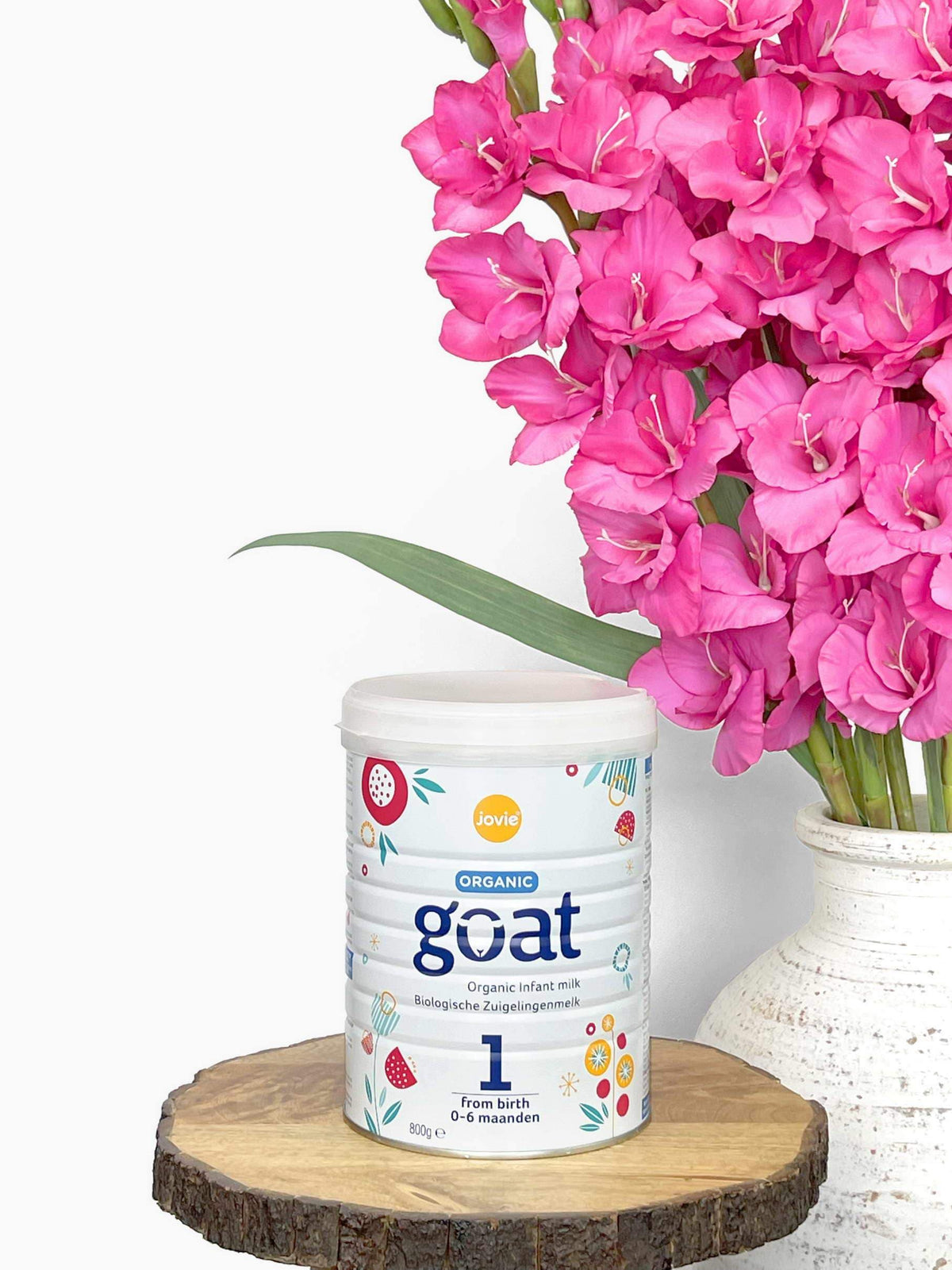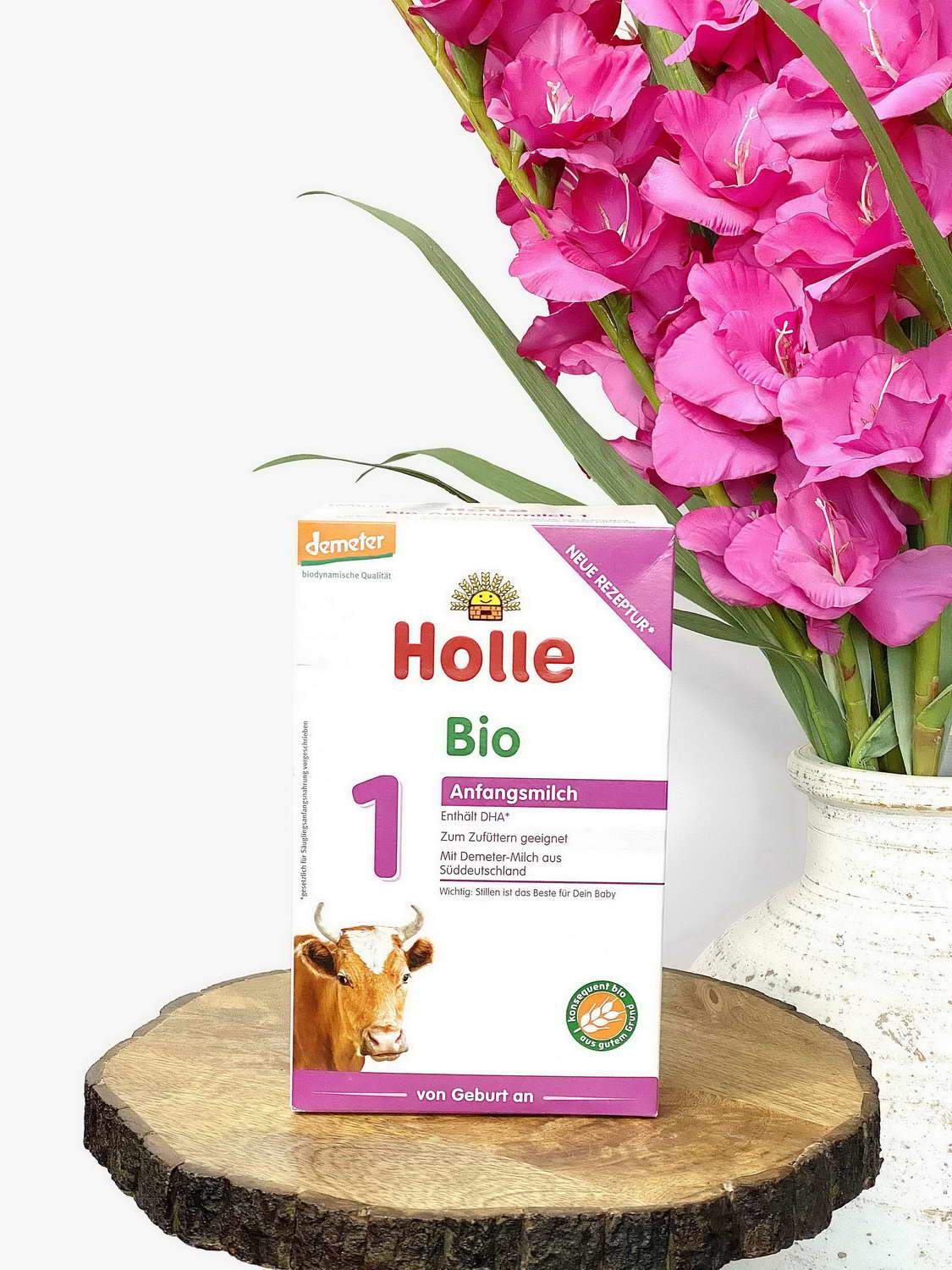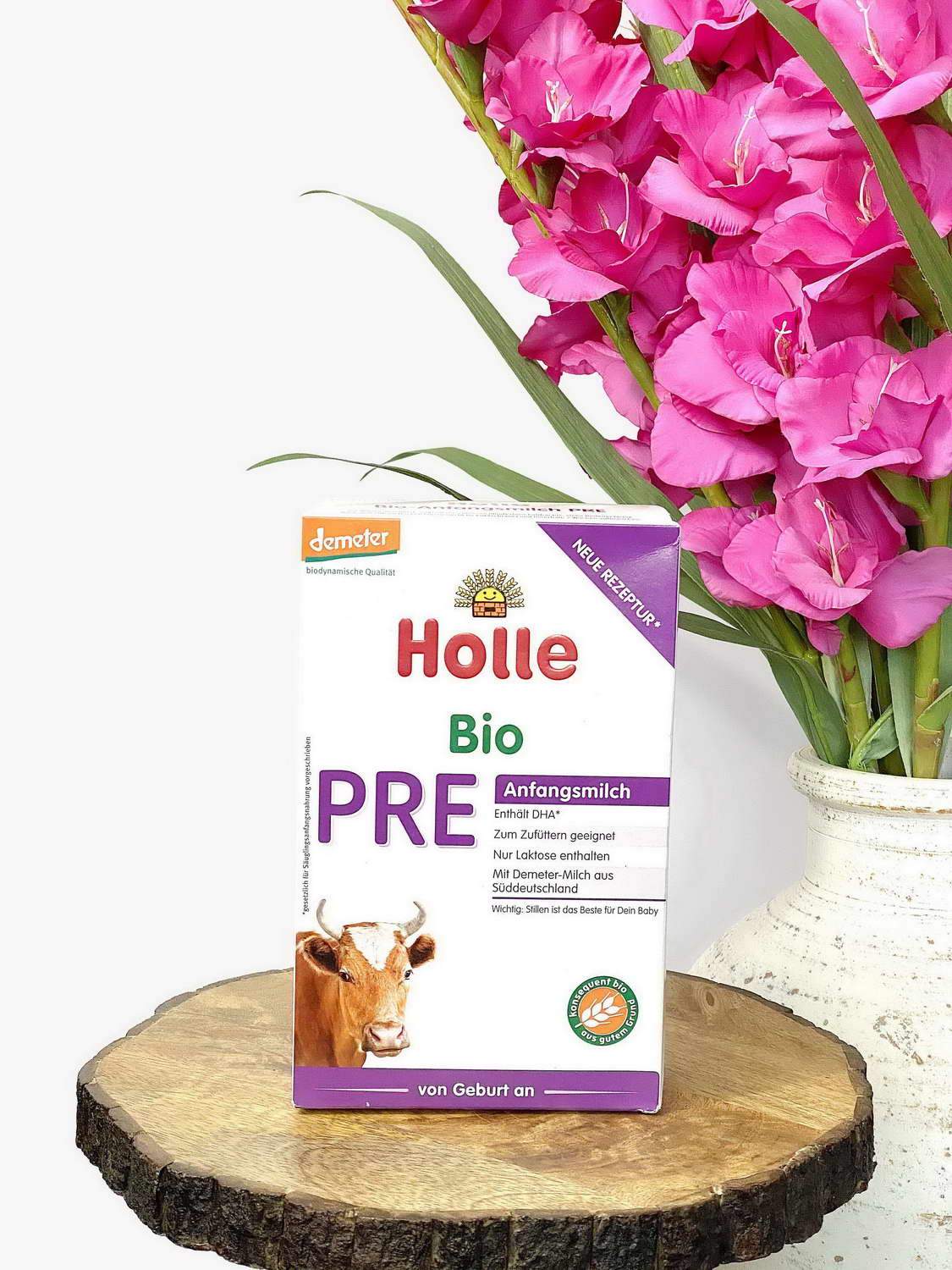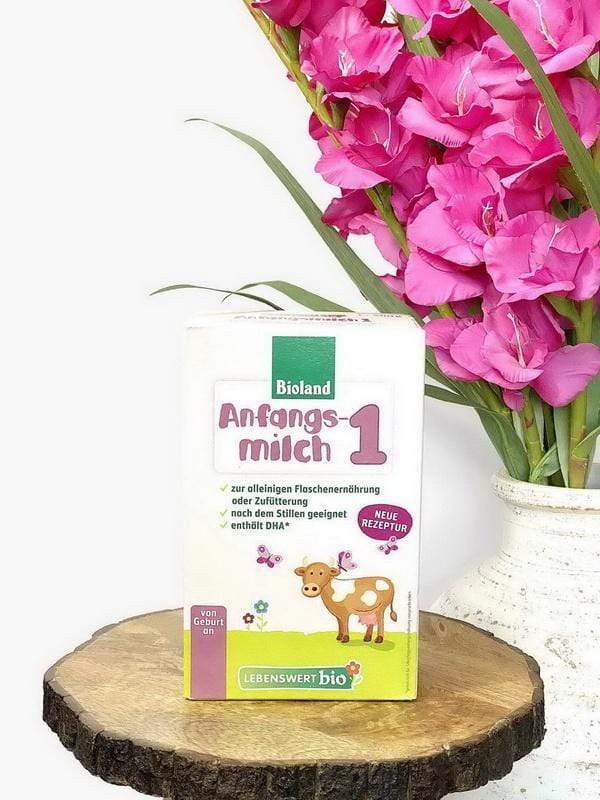Your cart is empty
Shop formulasYou have not added any favorites yet.
Shop formulasRecommended products
European Baby Formula Stages: The Ultimate Guide
Written by Renee Published on 10/04/24 Read Time 13 min

European baby formulas have become the answer to many families' nutritional needs. Parents opt out of local brands and turn toward those with high organic production standards and regulations.
By choosing 100% Organic European baby formula over American counterparts filled with added non-lactose sugars, soy, and toxic chemicals, families are making a health-conscious decision. These European formulas eliminate the many risks associated with unregulated ingredients, providing a reassuring choice for parents.
In this article, we will delve into the importance of offering baby formula that mirrors breast milk. European baby formula uses stages that mimic the natural progression of the mother's milk, providing parents with a comprehensive understanding of their child's nutritional needs at each stage of development.

What Are European Formula Stages and What's Their Purpose?
One of the many benefits of European baby formula is the labeling for developmental and nutritional needs over specific ages. This thoughtful design allows for individual care of each unique little one.
Starting from day one, European baby formulas take into account every detail of nutrition to ensure your baby will not only grow but thrive!
Stages of European Baby Formula
European formula companies use a consistent labeling system for the stages, but the wording may vary by brand. This variation is important for families to be aware of.
Families may see stage numbers written as first, second, third, or fourth on the can or box or a simplified version like PRE, 1, 2, 3, or 4.

What are the Differences Between European Baby Formula Stages?
European baby formula is meticulously crafted to meet the nutritional needs of babies at every stage of their development. Each stage-specific formula is formulated to replicate the essential nutrients in the mother's milk, tailored to support the unique developmental requirements of infants. These formulas play a crucial role in nurturing a baby's growing body and brain, facilitating the attainment of essential developmental milestones.
These specialized baby formulas cater to various stages of growth, with some intended for use from birth. In contrast, others are designed to accompany the introduction of solid foods as the baby grows older.
In addition to providing vital nutrients, European baby formulas support healthy digestion, strengthen the immune system, and contribute to overall growth and development in babies, ensuring a solid foundation for their well-being.
Infant Formula Stage Pre & Stage 1

European Baby Formula Stage PRE
It is explicitly formulated for infants, and this stage is the gentlest of all the European baby formulas. It is often used for the first days of life through three months, especially when supplementing breastfeeding. Still, it’s also perfect as a standalone formula, providing parents with peace of mind about their newborn's nutrition.
It is important to note that European baby formula stage PRE does not stand for premature babies or preemies; rather, it is a nutritional stage that is easier on an immature, still developing digestive system.
As babies' digestive systems learn to take in and keep down outside nourishment, stage PRE is designed to make this easier. Importantly, it achieves this without using starch, non-lactose sugars, artificial colors, or preservatives, ensuring the safety and health benefits of the formula.
It's easier to digest than most cow's milk formulas, yet it still provides the essential nutritional needs of a newborn. This strong emphasis on the product's nutritional value is designed to instill confidence in parents about their baby's healthy development.
European Baby Formula Stage One
Stage 1, often called 'first milk, ' is a versatile formula. While it's suggested for use from birth to 6 months, it's also suitable for the entire first year of your baby's life. This flexibility empowers you to make the best feeding choices for your baby.
The composition of stage 1 European baby formulas is designed to be gentle, mimicking breast milk as closely as possible.
These European baby formulas are the best starting point for weaning from breast to bottle or combination feeding. Weaning is a gradual process, and these formulas provide the necessary nutrients to support your baby's growth and development during this transition.
The stage one formula perfectly balances protein, vitamins, and minerals, complemented by extra carbohydrates. This balance supports the rapid development of your baby's body and mind, giving you confidence in their growth.
At this stage, you can rest assured that European baby formulas, including stage 1, are free of added sugars, wheat, soy, and GMOs. They are also allergen-free, ensuring the safety of your baby's diet and giving you peace of mind.
Most of the baby formulas in stage 1 continue to be free of starch and Maltodextrin. However, if your baby seems extra hungry or needs more calories, a formula with these ingredients may be necessary.
To meet these needs, HiPP German Stage 1 has starch added, and Holle Stage 1 has Maltodextrin.
European Goat Milk Baby Formula Stage One
The most sensitive babies need a European formula to soothe their immature digestive systems.
European goat milk formulas, with their smaller curds, less lactose, and natural prebiotics, are a unique and informed choice for parents of babies who need an easier-to-digest stage 1 formula.
With its unique proteins and a rich array of essential nutrients, goat milk is a confident choice for your baby's nutrition. Each of these European stage 1 goat milk formulas is perfectly balanced, providing a secure supplement to breastmilk or a complete nutritional alternative.
Catering to delicate systems, stage one goat milk formulas are also made without starch and maltodextrin with the expectation of Holle goat stage one.
Holle goat stage one, similar to the cow's milk version, includes maltodextrin, a carbohydrate that helps to satisfy the hunger of your little ones.
Follow-On Formula Stage 2 & 3

European Baby Formula Stage Two
For babies six months and older, this stage, often known as follow-on milk, is well suited for infants who eat few or no solids or as the next step in breast milk supplements.
European baby formula stage 2 is a boon for growing babies with a higher calorie need or those no longer satisfied at each feeding. It provides a rich source of essential nutrients, catering to your little one’s nutritional needs.
At this stage, your baby's health is our top priority. Our European baby formula stage 2 provides pure nutrition, free of added sugars, wheat, soy, or peanuts. This ensures your little one receives the best food to help them thrive and meet developmental milestones.
The primary difference between European Formula Stage 1 and Follow-On Formula Stage 2 is the whey: casein ratio balance, which changes from 60:40 to 40:60.
This gradual change in European baby formula stage 2 is designed to mimic the natural changes in breast milk. It helps prepare your little one to transition to solid food, ensuring a smooth and healthy developmental journey.
Many European baby formulas add starch, maltodextrin, or both at this stage. These ingredients provide the additional calories needed as your little one becomes more active, ensuring they have the energy to keep up with their growing curiosity and playfulness.
Goat Milk Baby Formula Stage Two
Families may consider transitioning to a follow-on goat formula at around six months. The stage 2 European goat formula, with its unique blend of nutrients, offers a different nutritional profile than stage 1 formulas. This flexibility allows parents to make an informed choice, empowering them to cater to their child's needs for growth and movement.
Stage 2 follow-on goat formulas, with their slightly higher protein content and increased casein, offer a more filling and slower-digesting option than whey protein. This nutritional profile is designed to provide the necessary sustenance for an older infant, reassuring parents that they are making a confident and informed choice.
Alongside a baby’s expanding diet of solid foods, Stage 2 formulas provide all the energy that an older infant needs and can be used alone or in combination with breast milk.
It's important to note that parents are not required to switch from stage 1 to stage 2 formula at six months. The balanced nutrition in stage 1 European goat formula allows parents to continue using it if their child is thriving and happy. Understanding and supporting individual parenting choices can help parents feel reassured and confident in their decisions.

European Baby Formula Stage Three
For parents seeking nutritional certainty, European baby formula stage 3 offers a significant next step in ensuring your little one's complete solid nutrition, providing a reassuring path.
European baby formula stage 3 is not a substitute for a diet of various healthy fruits, vegetables, and proteins. Instead, it serves as a powerful complement, empowering you to fill your toddler's nutritional gaps.
Depending on timing,, it is essential to note that some formulas labeled stage 3 are for ten months plus, and others start at formulas for 12 months. This slight variation depends on the country within the EU and its labeling requirements.
Stage 3 formula surpasses whole milk and other alternatives (almond milk, coconut milk, etc.) in nutritional content. While it may not be as micro- and macronutrient-dense as Stage 2 formula, this nutritional superiority instills confidence in your choice as solids become a more significant part of your little one's diet.
As with all stages of European baby formula, this stage continues with nutrition free of sugars and unwanted additives and utterly free of steroids, pesticides, hormones, and chemicals.
European Goat Milk Baby Formula Stage Three
The stage 3 European goat formula is specifically designed for toddlers. Many families appreciate these toddler milk’s extra nutrients and peace of mind.
Built primarily with your toddler in mind, this nutrition is intended to be offered in a cup to enforce the balance of formula and solid food.
Stage 3 goat milk formulas are balanced so that children intolerant or sensitive to dairy can easily digest these gentle toddler formulas made with A2 proteins, reassuring parents of their child's comfort.
Perfectly balanced for a toddler, this stage offers more vitamins and minerals for growth and development. A lower amount of protein encourages a balanced nutrition that includes solid food.
Toddler Milk Stage 4 & Kindermilch

European Baby Formula Stage Four & Kindermilch
Stage 3 European goat formula is specifically designed for toddlers. Many families appreciate these toddler milk's extra nutrients and peace of mind.
Built primarily for your toddler, this nutrition is intended to be offered in a cup to enforce the balance of formula and solid food.
Stage 3 goat milk formulas are balanced so that children intolerant or sensitive to dairy can easily digest these gentle toddler formulas made with A2 proteins, reassuring parents of their child's comfort.
Perfectly balanced for a toddler, this stage offers more vitamins and minerals for growth and development. A lower amount of protein encourages a balanced nutrition that includes solid food.
When Should I Change Formula Stages?
As your baby grows, their nutritional requirements change. This underscores the importance of transitioning them to higher formula stages. However, this transition is not solely determined by age, making it a more complex process.
It's crucial for parents to actively monitor signs and observations that indicate it's time to introduce the next stage. These signs include the baby's appetite, weight, overall health, and developmental milestones. By carefully monitoring these factors, parents can ensure that their baby is getting the proper nutrition at the right time, and they can make a smooth transition to the following formula stage.
How to Choose Baby Formula?
The European Commission has established regulations for infant and follow-on formula to ensure that each stage is produced to meet the nutritional needs of babies under 12 months of age.
Infants will start with Infant Formulas before the six-month mark. These early stages are the best choice for providing your newborn with all the necessary energy, proteins, vitamins, and minerals.
If your baby is thriving and has no digestive issues after six months, switching to solid food is a personal decision.
Switching at 6 Months
After six months, families may choose the next stage. Follow-on formulas are specifically designed to complement solid food, serving as a nutritional supplement rather than the sole source of nutrition. Families should wait until their baby is six months old before introducing follow-on formulas. At this point, the baby's digestive system is more mature and better equipped to handle these formulas.
These formulas contain added vitamins and minerals to support the baby's growth and development. Still, they should only be used as part of a balanced diet that includes a variety of solid foods.
Why Should I Change Baby Formula Stages?
Infant formula is formulated to mimic the nutritional complexity of breast milk. Breastmilk is a dynamic fluid, meaning its nutrient composition changes throughout lactation. As babies' metabolic needs change, breast milk provides the necessary nutrients to support their development. For instance, the protein content of breastmilk decreases as the baby grows, while the fat content increases to provide them with adequate calories.
On the other hand, baby formula has a static composition that doesn't change. Although formula manufacturers have tried to replicate breastmilk's nutritional profile, they cannot match its complexity. To address this, researchers have suggested that infant formulas should be designed to cater to the changing needs of babies as they grow older.
This staging concept is designed to improve the nutrition of formula-fed infants. For instance, the formula for newborns could contain a higher protein content to support their growth. In contrast, the formula for older babies could have more iron and calcium to support their bone development.
This approach instills confidence in parents about their feeding choices by providing the necessary nutrients at different stages, just like breastfed babies.

For Every Age and Stage
Each stage and individual baby formula is crafted with unique properties and the purest organic ingredients, ensuring your baby's growth, development, and thriving naturally.
Whether your family decides to keep your baby in the first stage or move through each European baby formula stage, My Organic Companyis committed to providing the nutrition your baby deserves. We understand the importance of your baby's health and are here to support you.
With our expertise and commitment to your baby's health, we are here to guide you in choosing the best baby formula for your little one.
Please be aware that this information is based on general trends in babies, and it is not medical advice. Your doctor should be your first source of information and advice when considering any changes to your child’s formula and when choosing your child’s formula. Always consult your pediatrician before making any decisions about your child’s diet or if you notice any changes in your child.
Breastfeeding is the best nutrition for your baby because breast milk provides your child with all the essential nutrients they need for growth and development. Please consult your pediatrician if your child requires supplemental feeding.
Author Bio:
Renee is an infant nutrition consultant and a full-time writer. Due to her experience in seeking better nutrition for her premature daughter, she advocates for European baby formula. Renee is fully committed to contributing value to this critical area of child development as a mother of a large family, foster parent, and adoption supporter.
Renee enjoys camping outdoors, swimming, and hiking with her family when she is not working.
















